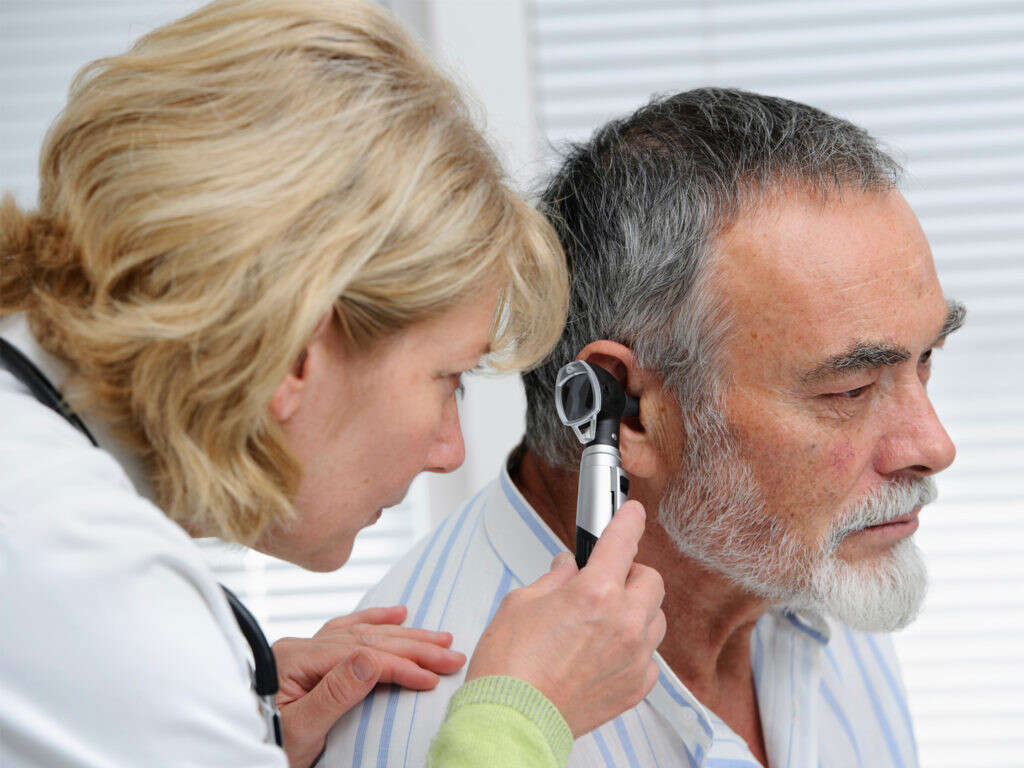10 Symptoms of Conversion Disorder
Conversion disorder is a rare condition, affecting around 25 in every 100,000 people. It is a condition that appears to be neurological, with physical symptoms such as tremors and speaking difficulties. However, it is a psychological condition that is difficult to pinpoint.
Some people with the condition might be accused of faking it because the cause cannot be located, but the symptoms are very much real. It is thought that it is often brought on by severe emotional trauma.
Conversion disorder has the potential to be extremely disruptive to peoples’ lives, and there is still a great deal more to be learned about the condition.
Symptom #1: Tremors
We are usually able to hold ourselves quite steadily. There may be times when we get the shakes, such as when we are struggling with the weight of something or maybe when we are just not well. Tremors, though, can also be a sign that something is quite wrong.
One of the possible manifestations of conversion disorder is motor ticks. These ticks can be seen as tremors or sudden and undesired movements of the limbs. Before thinking about a conversion disorder, it is important to rule out any condition that might cause this symptom to appear.
Symptom #2: Weakness
Our physical strength depends largely on the size of our muscles. The larger the muscles, the stronger we are and this can be achieved through exercise and eating the right type of diet. Sometimes, though, conditions with the nervous system can also have a direct impact on our physical strength.
Patients with conversion disorder can find that they feel far weaker than usual, even if they are otherwise strong and healthy. They can find it far more difficult to lift objects and carry out relatively easy tasks such as walking. If you are feeling weaker than usual and the symptoms persist, you should make an appointment with a doctor.

Symptom #3: Loss of Balance
For us to be able to walk upright as we do, a great deal of balance is required. We don’t usually think about it even when we are walking but we are constantly having to make adjustments to make sure that our center of balance keeps us upright. It is effortless for us, but it is something that we should not take for granted.
People with conversion disorder can find that they have difficulties maintaining their balance. With the messages going to and from the brain not working as they should, it is difficult for them to make the adjustments they need. This can make it difficult to perform even simple tasks.
Symptom #4: Lose Sensations
We are able to easily touch and feel the world around us to give us all the information we need about objects. We can easily tell if something is hot or cold, for example, and such information can be extremely useful to us. If we touch something that is harmful to us, we know that we should pull our hand away immediately.
Patients with conversion disorder, however, can begin to lose such sensations. With no messages being sent to the brain about the sensations, the brain does not know what it is feeling. This can be potentially hazardous as we can end up coming into contact with dangerous items without realizing it.

Symptom #5: Swallowing Difficulties
Swallowing is a reflex action that we perform without even thinking about it. As soon as food reaches the back of our mouths, we instinctively move our muscles in such a way that they force the food down into the stomach. Some people, though, can experience difficulties even in this very basic function.
Without the right messages traveling to and from our nervous system, we can find it all but impossible to swallow. The muscles will not do what is needed, meaning the food is not forced into our stomach. This can potentially lead to malnutrition and is something that can be dangerous if too severe.
Symptom #6: Hearing Difficulties
Our external ears help to channel sound waves into the inner ear. Here, the soundwaves will meet the eardrum which will detect the waves and then send the information to the brain. The brain will then decipher these waves into something meaningful, helping us to hear everything around us.
However, if these signals are not getting to the brain as freely as they should, then it can become very difficult for us to hear. This means that people with conversion disorder syndrome will often experience hearing difficulties. It might sometimes be overlooked as being something wrong with the ears, but you should get it checked out to find out what the problem is.

Symptom #7: Vision Problems
The eye is often used to demonstrate how evolution works. Initially, the first eye would have been little more than a light-sensitive patch that told the brain the difference between light and dark. As it became more complex, though, it was able to tell the brain more and more about the world around us.
As the eye detects the light coming in, the retina then converts information about the light into information that is then sent to the brain. If these messages being sent to the brain are not flowing as they should, then the patient can begin to have difficulty seeing what is around them.
Patients with conversion disorder may experience acute vision loss. If the symptoms appear shortly after an emotional trigger, and no other cause can be associated after a full medical analysis, it might be a case of conversion disorder.
Symptom #8: Slurred Speech
The ability to speak is something else that we take for granted on a daily basis. What we don’t often realize is that it actually requires an astonishing amount of coordination between numerous muscles in and around our mouths. Lose this ability to coordinate so precisely, and we can begin to lose the ability to speak.
With the communication between the brain and the muscles struggling, the patient can begin to develop slurred speech. It can become difficult for them to make themselves understood and this can be very frustrating for them. Slurred speech can be a sign of some potentially serious problems and is something that should be checked out.

Symptom #9: Seizures
Our brain is responsible for sending commands to pretty much the entire body. The brain controls all of our movements, whether consciously or subconsciously. It does this by sending messages to muscles and organs but sometimes these messages can become confused. This can play havoc with the rest of the body.
The wrong messages coming from the brain can cause muscles to retract and relax uncontrollably. This can result in seizures in which the whole body convulses, sometimes violently. Seizures are a clear sign that something is very wrong, and emergency medical assistance should be sought as soon as possible.
Symptom #10: Unresponsiveness
The messages that run to and from our brain tells us all we need to know about the world around us and allows us to react when appropriate. If these messages are not flowing as they should, then it can be difficult for people to react to what is around them.
Some patients with conversion disorder can become unresponsive to the world around them. They might not even seem aware of what is going on around them and have no response whatsoever to people talking to them. It is a condition that can be potentially hazardous in public, so the patient should be kept in a safe place as necessary.










